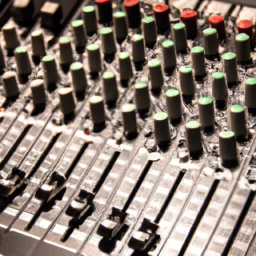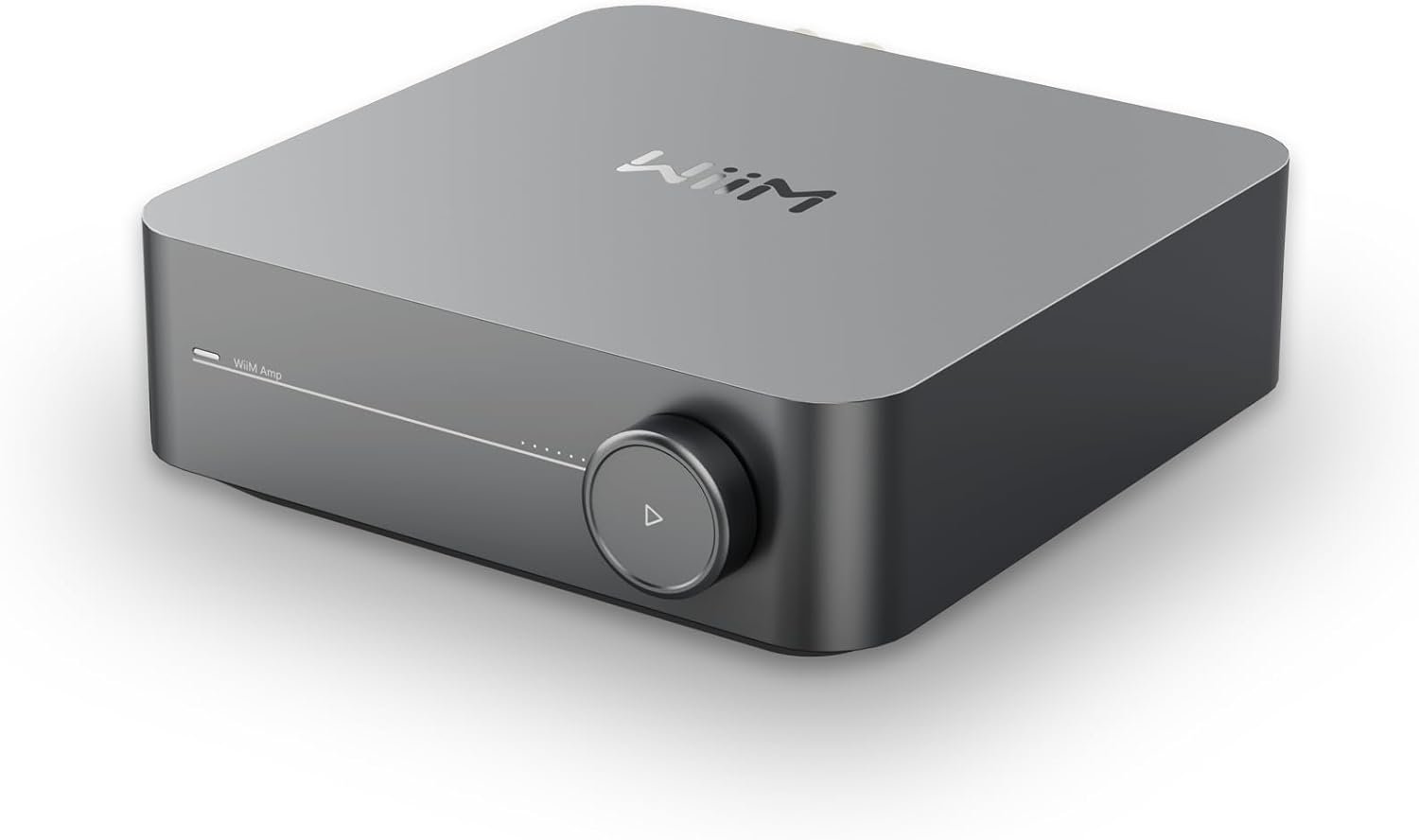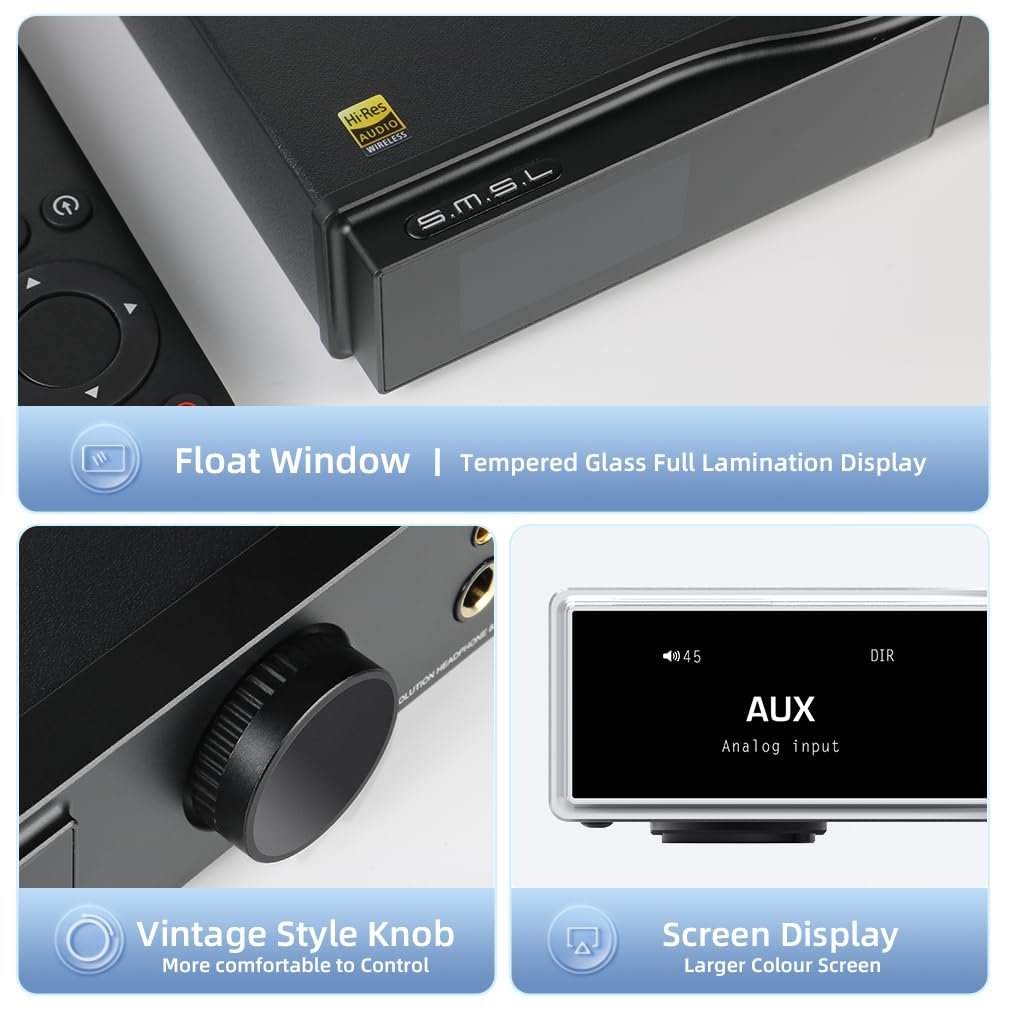You know that feeling when you hear your favorite song playing and it transports you to a different world? Well, behind every captivating melody and immersive audio experience is the work of a skilled audio engineer. In this article, we will delve into the fascinating realm of audio engineering and explore the vital role these professionals play in crafting the sonic experiences that are an integral part of our lives. From capturing the perfect sound quality to mixing and mastering, audio engineers truly are the unsung heroes who bring music and audio to life. So, buckle up and get ready to discover the magic happening behind the scenes of your favorite tunes.
Understanding the audio engineering profession
Overview of the audio engineering career
Audio engineering is a fascinating profession that involves the technical and creative aspects of manipulating sound to create high-quality recordings, immersive live experiences, and captivating sonic landscapes. Audio engineers are responsible for recording, mixing, and mastering music, setting up and operating sound equipment at live shows, designing sonic experiences for various industries, and much more. They play a crucial role in bringing sound to life and ensuring that listeners have exceptional auditory experiences.
Essential skills for audio engineers
To excel in the audio engineering profession, several essential skills are required. Firstly, a solid understanding of sound and acoustics is vital. Audio engineers must be knowledgeable about frequencies, sound waves, and the physics behind them. They should possess a keen ear for detail and have the ability to identify and correct audio imperfections. Strong technical skills in using audio equipment, software, and technology are also necessary. Audio engineers must be proficient in using digital audio workstations (DAWs), audio plugins, and various hardware devices used in recording and live sound. Additionally, good communication and collaboration skills are essential, as audio engineers often work closely with artists, producers, and other professionals in the music industry.
Popular industries for audio engineering
Audio engineering is a versatile field that offers opportunities in various industries. One of the most popular areas for audio engineers is the music industry. They are responsible for making recordings of songs, albums, and live performances sound polished and professional. Audio engineers also play key roles in the broadcast and film industries, ensuring that sound in movies, television shows, and advertisements is of the highest quality. Furthermore, the gaming industry relies heavily on audio engineers to create immersive soundscapes and realistic sound effects. Audio engineers may also find work in fields such as theater, radio, podcasting, virtual reality, and augmented reality.
Role and responsibilities of an audio engineer
Producing and recording music
One of the primary responsibilities of an audio engineer is producing and recording music. They work closely with artists, producers, and songwriters to capture the desired sound and atmosphere for a recording. This involves selecting the appropriate microphones, setting up the recording environment, and ensuring that all the equipment is functioning correctly. Audio engineers also provide guidance and technical expertise during recording sessions, helping artists achieve their artistic vision while maintaining high-quality sound.
Mixing and mastering tracks
After the recording process is complete, audio engineers take on the task of mixing and mastering the tracks. Mixing involves balancing individual elements of a song, such as vocals, instruments, and effects, to create a cohesive and pleasing sonic experience. This process requires careful equalization, compression, and spatial positioning techniques to ensure that each element is audible and well-defined. Mastering takes the mixed tracks and applies a series of final adjustments to optimize them for various listening environments, ensuring consistency and clarity across different playback systems.
Setting up and operating sound equipment at live shows
Audio engineers are also responsible for setting up and operating sound equipment at live shows, concerts, and events. This includes handling the sound system, microphones, amplifiers, and other related devices. Audio engineers must possess strong technical knowledge to ensure that each sound component is working optimally and that the sound quality is appropriate for the venue and the performance. They work closely with musicians, stage managers, and other crew members to ensure that the sound is balanced, clear, and impactful for the audience.
Audio engineering and sonic experiences
Defining sonic experiences
Sonic experiences can be described as the emotional and sensory responses evoked by the auditory environment. It encompasses all aspects of sound, including the timbre, pitch, rhythm, and spatial characteristics. Sonic experiences can range from the subtle ambiance of a peaceful forest to the thrilling energy of a rock concert. These experiences have the power to transport people, trigger memories, and evoke emotions, making them an integral part of our lives.
Creating a sonic experience: live vs. recorded
Sonic experiences can be created through both live and recorded sound. Live sound refers to the sound produced during a live performance or event, where audio engineers play a crucial role in shaping the sonic experience for the audience. They must consider factors such as the acoustics of the venue, the positioning of speakers, and the balance of the sound elements to create an immersive and impactful experience.
On the other hand, recorded sound involves capturing and manipulating sound in a studio or controlled environment, allowing for more precision and flexibility in crafting the desired sonic experience. Audio engineers can experiment with different recording techniques, mix various sound elements, and apply effects to enhance the emotional impact of the recording.
Ways an audio engineer contributes to sonic experiences
Audio engineers contribute to sonic experiences in various ways. They collaborate with artists to capture and enhance the nuances of their performances, ensuring that emotions are translated effectively through sound. By employing creative techniques, such as using different mic placements or applying unique processing effects, audio engineers can add depth, texture, and spatiality to recordings, enhancing the overall sonic experience. Moreover, in live performances, audio engineers work tirelessly behind the scenes to create seamless transitions, balance the sound levels, and enhance the audience’s perception of the music.
Crafting emotions through sound
The power of sound for eliciting emotions
Sound has a profound impact on our emotions, as it can stimulate feelings of joy, sadness, excitement, or nostalgia. Think about the effect of a movie soundtrack on our perception of a scene or the emotional charge of a song that resonates deeply with us. Audio engineers have the ability to harness this power to elicit specific emotions in the listener.
Role of audio engineers in sound and emotional design
Audio engineers play a critical role in sound and emotional design, shaping the auditory elements to elicit desired emotional responses. By understanding the emotional intent of a piece of music or a sonic experience, audio engineers can make informed decisions regarding sound choices, dynamics, and spatialization. They carefully consider the balance, frequency content, and tonal qualities of the sound elements to create an emotional narrative that resonates with the intended audience.
Case studies of emotions crafted through sound
One notable case study is the use of sound in horror movies. Audio engineers employ techniques such as dissonant chords, low-frequency rumbles, and startling sound effects to elicit feelings of fear, suspense, and tension in the audience. Another example is the use of sound in advertising, where audio engineers manipulate sound frequencies and design immersive soundscapes to captivate and engage consumers’ emotions. These case studies demonstrate the powerful impact of audio engineers in crafting emotions through sound.
The science behind sonic experiences
Understanding sound psychology
Sound psychology explores how sound influences human behavior, cognition, and emotions. Audio engineers who understand the principles of sound psychology can leverage this knowledge to create compelling sonic experiences. For instance, they can use certain frequencies or musical elements that are commonly associated with relaxation to enhance the calming effect of a spa or meditation recording.
Acoustics and psychoacoustics in audio engineering
Acoustics and psychoacoustics play a fundamental role in audio engineering. Acoustics involves the study of how sound propagates in different environments and interacts with various surfaces. Audio engineers need to consider factors such as room reflections, absorption, and diffusion when recording or mixing to achieve optimal sound quality.
Psychoacoustics, on the other hand, explores how humans perceive and interpret sound. It delves into the mechanisms of auditory perception, including how we localize sound, perceive loudness, and recognize pitch. Understanding psychoacoustic principles allows audio engineers to shape sonic experiences that align with the listener’s perception and enhance their engagement with the sound.
How engineers manipulate sound frequencies
Audio engineers have the ability to manipulate sound frequencies to achieve desired effects. For example, they can boost the low frequencies to make a recording sound warmer or use high-frequency shelving to add sparkle and brightness to a mix. By understanding the psychoacoustic properties of different frequency ranges, audio engineers can emphasize specific elements within a sound and create a more immersive and impactful sonic experience.
Audio engineering in different industries
Audio engineering in the music industry
In the music industry, audio engineers play a crucial role in capturing and enhancing the artistic vision of musicians. They operate recording studios, manage the technical aspects of recording sessions, and utilize their expertise to achieve high-quality and commercially viable recordings. Audio engineers also work closely with artists during the mixing and mastering process, ensuring that the final product resonates with listeners and conveys the intended emotion.
Role in broadcast and film
Audio engineers have a significant impact on the broadcast and film industries. In television and film production, they are responsible for capturing dialogue, ambient sound, and sound effects, ensuring that they are of the highest quality and seamlessly integrated with the visuals. Audio engineers also shape the overall sound design, creating immersive and realistic sonic experiences that enhance the storytelling. In broadcasting, audio engineers ensure that sound quality is pristine during live events, interviews, and news broadcasts, ensuring that viewers have an enjoyable listening experience.
Exploring audio engineering in gaming
The gaming industry relies heavily on audio engineers to create immersive and dynamic soundscapes. Audio engineers are responsible for designing and implementing sound effects, background music, and dialogue recordings in video games. They use their technical skills to integrate sound seamlessly into the game, ensuring synchronization with the gameplay and enhancing the player’s overall experience. From realistic footsteps to epic battle scenes, audio engineers play a crucial role in bringing games to life.
The role of technology in audio engineering
Impact of technological advancements on audio engineering
Technological advancements have revolutionized the audio engineering profession, providing audio engineers with powerful tools and techniques to achieve outstanding results. The digitization of audio recording and processing has made it easier to manipulate and edit sound with precision and efficiency. Advanced digital audio workstations (DAWs), plugins, and virtual instruments have expanded the creative possibilities and streamlined the workflow for audio engineers. Furthermore, advancements in audio equipment, such as microphones and speakers, have greatly improved the fidelity and accuracy of sound reproduction.
Commonly used tools and software in audio engineering
Audio engineers employ a wide range of tools and software to carry out their tasks effectively. Digital audio workstations (DAWs) are the backbone of the audio engineer’s toolkit, providing the platform for recording, editing, mixing, and mastering audio. Industry-standard DAWs include Pro Tools, Logic Pro, and Ableton Live. Additionally, audio engineers utilize various plugins for effects processing, equalization, compression, and spatialization. Popular plugins include Waves, FabFilter, and Soundtoys. Hardware devices such as audio interfaces, MIDI controllers, and studio monitors are also indispensable tools for audio engineers.
Future tech trends in audio engineering
As technology continues to advance, the future of audio engineering holds exciting possibilities. One emerging trend is immersive audio, which involves creating three-dimensional soundscapes that envelop the listener. This technology has the potential to enhance the immersive qualities of virtual reality, augmented reality, and gaming experiences. Additionally, artificial intelligence and machine learning are being integrated into audio engineering software, offering intelligent algorithms that assist in tasks such as audio restoration, automatic mixing, and sound synthesis. The future also holds promise for new hardware innovations, improved audio codecs, and wireless audio transmission technologies, further expanding the boundaries of audio engineering.
Challenges faced by audio engineers
Balancing technical skills and creativity
One of the challenges faced by audio engineers is finding the right balance between technical skills and creativity. While technical knowledge and proficiency with equipment are essential, it is equally important for audio engineers to maintain their artistic sensibilities and creative instincts. Striking a harmonious balance between technical precision and creative expression can sometimes be a delicate task, but it is crucial in order to produce exceptional sonic experiences.
Adapting to rapidly changing technology
The audio engineering profession is characterized by rapidly evolving technology. New tools, software, and techniques emerge regularly, necessitating continuous learning and adaptation. Audio engineers must navigate this ever-changing landscape to stay up-to-date with the latest advancements and ensure that their skills remain relevant. This constant need for learning and adaptation can be challenging and requires a dedication to continuous professional development.
Physical strain and stress-related challenges
Audio engineers often work in demanding environments, such as live shows or long studio sessions. This can lead to physical strain and stress-related challenges. Audio engineers may spend long hours standing, lifting heavy equipment, and enduring high sound pressure levels, which can result in fatigue and physical discomfort. Additionally, the pressure to meet deadlines and deliver exceptional sonic experiences can contribute to mental and emotional stress. It is crucial for audio engineers to prioritize self-care, take breaks, and establish a healthy work-life balance to mitigate these challenges.
Importance of continued learning for audio engineers
Keeping up with advances in tech
Continued learning is of utmost importance for audio engineers in order to stay relevant and keep up with advances in technology. By staying informed about the latest tools, software updates, and techniques, audio engineers can leverage new technologies to enhance their creative process and deliver high-quality sonic experiences. Attending workshops, participating in webinars, and engaging in online forums and communities are effective ways for audio engineers to stay connected and learn from industry experts.
Learning new techniques and strategies
The audio engineering field is dynamic, with new techniques and strategies constantly emerging. Audio engineers should embrace a mindset of lifelong learning to continually expand their skill set and explore new possibilities. This could involve experimenting with different recording techniques, exploring innovative mixing approaches, or learning about emerging genres and styles. By proactively seeking out new knowledge and techniques, audio engineers can broaden their creative palette and bring fresh perspectives to their craft.
Staying updated about industry trends
Staying abreast of industry trends is crucial for audio engineers to adapt to changing market demands. The music, broadcast, and gaming industries are constantly evolving, with new genres, formats, and technologies shaping the audio landscape. By following industry publications, attending conferences, and networking with peers, audio engineers can gain valuable insights into emerging trends and opportunities. This knowledge enables them to anticipate and meet the needs of clients and listeners, building a reputation as versatile and informed professionals.
Conclusion: The indelible impact of audio engineers on sonic experiences
Understanding the power of well-crafted sonic experiences is crucial in appreciating the indelible impact of audio engineers on our auditory landscape. They possess the technical expertise, artistic sensibilities, and creative vision to shape sound in ways that evoke emotions, transport listeners, and create memorable moments. The continuous evolution of the audio engineering profession, driven by technological advancements and changing industry demands, ensures that the future holds even greater possibilities for crafting exceptional sonic experiences. Looking ahead, audio engineers will continue to play a vital role in shaping how we perceive, experience, and connect with sound.



